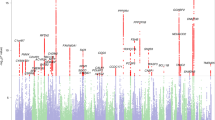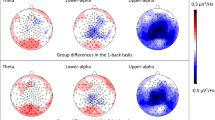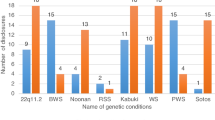Abstract
Dyslexia is a developmental disorder characterized by severe problems in the acquisition of reading and writing skills. It has a strong neurobiological basis. Genetic influence is estimated at 50–70%. One of the central problems with dyslexia is its late diagnosis, normally not before the end of the 2nd grade, resulting in the loss of several years for early therapy. Currently, research is focusing on the development of early tests for dyslexia, which may be based on EEG and genetics. Our aim was to determine the acceptance of such a future test among parents. We conducted a representative survey in Germany with 1000 parents of children aged 3–7 years, with and without experience of dyslexia. 88.7% of the parents supported the introduction of an early test for dyslexia based on EEG and genetics; 82.8% would have their own children tested, and 57.9% were willing to pay for the test if health insurance did not cover the costs. Test acceptance was significantly higher if parents had prior experience with dyslexia. The perceived benefits of such a test were early recognition and remediation and, preventing deficits. Concerns regarded the precision of the test, its potentially stigmatizing effect and its costs. The high overall support for the test leads to the conclusion that parents would accept a test for dyslexia based on EEG and genetics.
Similar content being viewed by others
Log in or create a free account to read this content
Gain free access to this article, as well as selected content from this journal and more on nature.com
or
References
Lindgren SD, De Renzi E, Richman LC : Cross-national comparisons of developmental dyslexia in Italy and the United States. Child Dev 1985; 56: 1404–1417.
Landerl K, Wimmer H, Frith U : The impact of orthographic consistency on dyslexia: a German-English comparison. Cognition 1997; 63: 315–334.
Schulte-Körne G, Remschmidt H : Lese-Rechtschreibstörung (Legasthenie) - Symptomatik, Diagnostik, Ursachen, Verlauf und Behandlung. Deutsches Ärzteblatt 2003; 100: 396–408.
Breuer H, Weuffen M : Lernschwierigkeiten am Schulanfang. Schuleingangsdiagnostik zur Früherkennung und Frühförderung: Weinheim, Beltz, 1994.
Jansen H, Mannhaupt G, Marx H et al BISC Bielefelder Screening zur Früherkennung von Lese-Rechtschreibschwierigkeiten, 2nd Edition. Hogrefe: Göttingen, Germany, 2002.
Gardner H, Froud K, McClelland A et al: Development of the Grammar and Phonology Screening (GAPS) test to assess key markers of specific language and literacy difficulties in young children. Int J Lang Commun Disord 2006; 41: 513–540.
Marx P, Weber J : Vorschulische Vorhersage von Lese- und Rechtschreibschwierigkeiten - Neue Befunde zur prognostischen Validität des Bielefelder Screenings (BISC). Z Padagog Psych 2006; 20: 251–259.
Kujala T, Naatanen R : The mismatch negativity in evaluating central auditory dysfunction in dyslexia. Neurosci Biobehav Rev 2001; 25: 535–543.
Leppanen PH, Hamalainen JA, Salminen HK et al: Newborn brain event-related potentials revealing atypical processing of sound frequency and the subsequent association with later literacy skills in children with familial dyslexia. Cortex 2010; 46: 1362–1376.
Schulte-Körne G, Warnke A, Remschmidt H : [Genetics of dyslexia]. Z Kinder Jugendpsychiatr Psychother 2006; 34: 435–444.
Pötzsch O : Geburten in Deutschland - Ausgabe 2012. Statistisches Bundesamt: Wiesbaden, Germany, 2012.
Dirtheuer K, Wolf M : D21 - Digital - Index - Auf dem Weg in ein digitales Deutschland?! Initiative D21 e.V., Berlin 2013.
European Commission Special Eurobarometer 396 - E-Communications Household Survey. Brussels: European Commission, 2013.
Williams MS, Snyder DC, Sloane R et al: A comparison of cancer survivors from the PROMIS study selecting telephone versus online questionnaires. Psychooncology 2013; 22: 2632–2635.
Eysenbach G, Wyatt J : Using the Internet for surveys and health research. J Med Internet Res 2002; 4: E13.
Vermeulen E, Henneman L, van El CG et al: Public attitudes towards preventive genomics and personal interest in genetic testing to prevent disease: a survey study. Eur J Public Health 2013; 24: 768–775.
Etchegary H, Cappelli M, Potter B et al: Attitude and knowledge about genetics and genetic testing. Public Health Genomics 2010; 13: 80–88.
Lawrence RE, Appelbaum PS : Genetic testing in psychiatry: a review of attitudes and beliefs. Psychiatry 2011; 74: 315–331.
Henneman L, Vermeulen E, van El CG et al: Public attitudes towards genetic testing revisited: comparing opinions between 2002 and 2010. Eur J Hum Genet 2013; 21: 793–799.
Branstrom R, Kasparian NA, Affleck P et al: Perceptions of genetic research and testing among members of families with an increased risk of malignant melanoma. Eur J Cancer 2012; 48: 3052–3062.
Christie L, Wotton T, Bennetts B et al: Maternal attitudes to newborn screening for fragile X syndrome. Am J Med Genet A 2013; 161 A: 301–311.
Shin DW, Cho J, Roter DL et al: Attitudinal concordance toward uptake and disclosure of genetic testing for cancer susceptibility in patient-family member dyads. Clin Genet 2014.
Bruno M, Digennaro M, Tommasi S et al: Attitude towards genetic testing for breast cancer susceptibility: a comparison of affected and unaffected women. Eur J Cancer Care (Engl) 2010; 19: 360–368.
Lerman C, Daly M, Masny A et al: Attitudes about genetic testing for breast-ovarian cancer susceptibility. J Clin Oncol 1994; 12: 843–850.
Bottorff JL, Ratner PA, Balneaves LG et al: Women's interest in genetic testing for breast cancer risk: the influence of sociodemographics and knowledge. Cancer Epidemiol Biomarkers Prev 2002; 11: 89–95.
Acknowledgements
We thank all the members of the LEGASCREEN consortium for their support during this study. LEGASCREEN is funded by the Fraunhofer Society and the Max Planck Society as a project within the framework of the ‘Pakt für Forschung und Innovation’.
Author information
Authors and Affiliations
Consortia
Corresponding author
Ethics declarations
Competing interests
All contributing authors are members of the LEGASCREEN consortium. The aim of this consortium is to develop of an early screening test for dyslexia based on biological markers. AW, JB, FE and HK hold a patent concerning the genetic diagnosis of dyslexia.
Additional information
The LEGASCREEN consortium comprises the Fraunhofer Institute for Cell Therapy and Immunology and the Max Planck Institute for Human Cognitive and Brain Sciences. Members are Professor Dr Dr h.c. Angela D. Friederici, Professor Dr Frank Emmrich, Dr Jens Brauer, Dr Arndt Wilcke, Dr Nicole Neef, Dr Dr Johannes Boltze, Dr Michael Skeide, Dr Holger Kirsten, Gesa Schaadt, Bent Müller, Indra Kraft, Ivonne Czepezauer, and Nadin Bobovnikov.
Supplementary Information accompanies this paper on European Journal of Human Genetics website
Supplementary information
Rights and permissions
About this article
Cite this article
Wilcke, A., Müller, B., Schaadt, G. et al. High acceptance of an early dyslexia screening test involving genetic analyses in Germany. Eur J Hum Genet 24, 178–182 (2016). https://doi.org/10.1038/ejhg.2015.103
Received:
Revised:
Accepted:
Published:
Issue date:
DOI: https://doi.org/10.1038/ejhg.2015.103



